第32章 Chapter 12(3)
If the trouble occurred in the conductor's department, that officer must suffer if his subordinate cannot be proven guilty; if in the engineer's department and the case be similar, the engineer must answer. Footnote 1The Old Travelers--those delightful parrots who have "been here before"and know more about the country than Louis Napoleon knows now or ever will know--tell us these things, and we believe them because they are pleasant things to believe and because they are plausible and savor of the rigid subjection to law and order which we behold about us everywhere.
But we love the Old Travelers. We love to hear them prate and drivel and lie. We can tell them the moment we see them. They always throw out a few feelers; they never cast themselves adrift till they have sounded every individual and know that he has not traveled. Then they open their throttle valves, and how they do brag, and sneer, and swell, and soar, and blaspheme the sacred name of Truth! Their central idea, their grand aim, is to subjugate you, keep you down, make you feel insignificant and humble in the blaze of their cosmopolitan glory! They will not let you know anything. They sneer at your most inoffensive suggestions; they laugh unfeelingly at your treasured dreams of foreign lands; they brand the statements of your traveled aunts and uncles as the stupidest absurdities; they deride your most trusted authors and demolish the fair images they have set up for your willing worship with the pitiless ferocity of the fanatic iconoclast!
But still I love the Old Travelers. I love them for their witless platitudes, for their supernatural ability to bore, for their delightful asinine vanity, for their luxuriant fertility of imagination, for their startling, their brilliant, their overwhelming mendacity!
By Lyons and the Saône (where we saw the lady of Lyons and thought little of her comeliness), by Villa Franca, Tonnere, venerable Sens, Melun, Fontainebleau, and scores of other beautiful cities, we swept, always noting the absence of hog wallows, broken fences, cow lots, unpainted houses, and mud, and always noting, as well, the presence of cleanliness, grace, taste in adorning and beautifying, even to the disposition of a tree or the turning of a hedge, the marvel of roads in perfect repair, void of ruts and guiltless of even an inequality of surface--we bowled along, hour after hour, that brilliant summer day, and as nightfall approached we entered a wilderness of odorous flowers and shrubbery, sped through it, and then, excited, delighted, and half persuaded that we were only the sport of a beautiful dream, lo, we stood in magnificent Paris!
What excellent order they kept about that vast depot! There was no frantic crowding and jostling, no shouting and swearing, and no swaggering intrusion of services by rowdy hackmen. These latter gentry stood outside--stood quietly by their long line of vehicles and said never a word. A kind of hackman general seemed to have the whole matter of transportation in his hands. He politely received the passengers and ushered them to the kind of conveyance they wanted, and told the driver where to deliver them. There was no "talking back," no dissatisfaction about overcharging, no grumbling about anything. In a little while we were speeding through the streets of Paris and delightfully recognizing certain names and places with which books had long ago made us familiar. It was like meeting an old friend when we read "Rue de Rivoli" on the street corner; we knew the genuine vast palace of the Louvre as well as we knew its picture; when we passed by the Column of July we needed no one to tell us what it was or to remind us that on its site once stood the grim Bastille, that grave of human hopes and happiness, that dismal prison house within whose dungeons so many young faces put on the wrinkles of age, so many proud spirits grew humble, so many brave hearts broke.
We secured rooms at the hotel, or rather, we had three beds put into one room, so that we might be together, and then we went out to a restaurant, just after lamplighting, and ate a comfortable, satisfactory, lingering dinner. It was a pleasure to eat where everything was so tidy, the food so well cooked, the waiters so polite, and the coming and departing company so moustached, so frisky, so affable, so fearfully and wonderfully Frenchy!
All the surroundings were gay and enlivening. Two hundred people sat at little tables on the sidewalk, sipping wine and coffee; the streets were thronged with light vehicles and with joyous pleasure-seekers; there was music in the air, life and action all about us, and a conflagration of gaslight everywhere!
After dinner we felt like seeing such Parisian specialties as we might see without distressing exertion, and so we sauntered through the brilliant streets and looked at the dainty trifles in variety stores and jewelry shops. Occasionally, merely for the pleasure of being cruel, we put unoffending Frenchmen on the rack with questions framed in the incomprehensible jargon of their native language, and while they writhed we impaled them, we peppered them, we scarified them, with their own vile verbs and participles.
We noticed that in the jewelry stores they had some of the articles marked "gold" and some labeled "imitation." We wondered at this extravagance of honesty and inquired into the matter. We were informed that inasmuch as most people are not able to tell false gold from the genuine article, the government compels jewelers to have their gold work assayed and stamped officially according to its fineness and their imitation work duly labeled with the sign of its falsity. They told us the jewelers would not dare to violate this law, and that whatever a stranger bought in one of their stores might be depended upon as being strictly what it was represented to be. Verily, a wonderful land is France!